For Beginners LLC
155 Main Street, Suite 211
Danbury, CT 06810 USA
www.forbeginnersbooks.com
Text: 2012 W. Terrence Gordon
Illustrations: 2012 Susan Willmarth
All rights reserved. No part of this publication may be reproduced, stored in a retrieval system, or transmitted in any form or by any means, electronic, mechanical, photocopying, recording, or otherwise, without prior permission of the publisher.
A For Beginners Documentary Comic Book
Copyright 2012
Cataloging-in-Publication information is available from the Library of Congress.
eISBN: 978-1-939994-16-5
For Beginners and Beginners Documentary Comic Books are published by For Beginners LLC.
v3.1
CONTENTS
CULTURE IS OUR BUSINESS = 
Business Is Our Culture

The author gratefully acknowledges the help of the following people:
Eric McLuhan
Arthur Kroker
Greg Skinner
John Barry
Lee Robertson
Jane Williamson
and Tim, isnt this a surprise,
after all these years?

 f you are like most people, youve probably heard of Marshall McLuhanthe man Playboy magazine called the High Priest of popcult and the Metaphysician of Mediaand You probably even recognize a couple of the phrases he came up Withthe medium is the message arid the global villagebut thats about it. Not only have you never read any Of McLuhans books, youve probably never read anything that makes you. think you should.
f you are like most people, youve probably heard of Marshall McLuhanthe man Playboy magazine called the High Priest of popcult and the Metaphysician of Mediaand You probably even recognize a couple of the phrases he came up Withthe medium is the message arid the global villagebut thats about it. Not only have you never read any Of McLuhans books, youve probably never read anything that makes you. think you should.
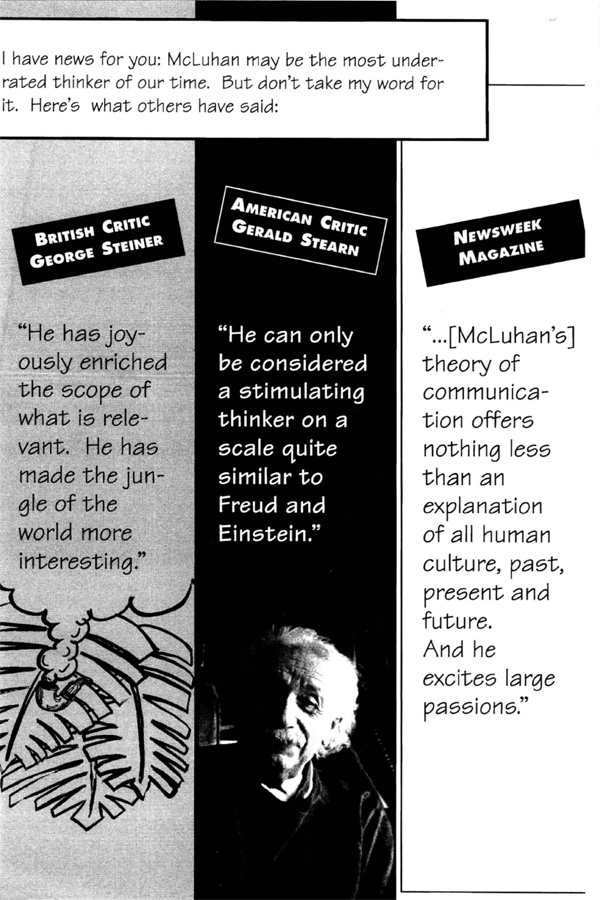
...the new environment that McLuhan discerns should be studied as carefully as the O2 system in the Apollo spaceship. Just possibly, understanding McLuhan may help ensure that earths environment sustains rather than destroys the crew.
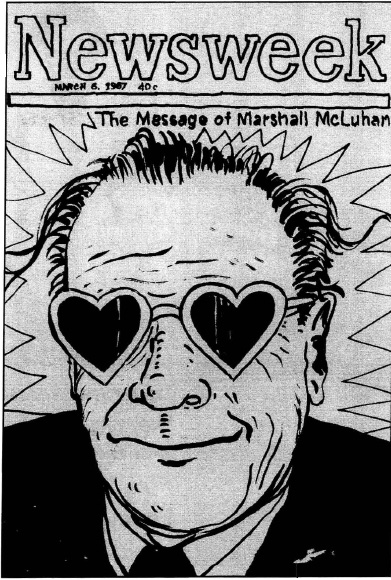
McLuhan is a synthesizer. He has gathered amorphous and scattered ideas, thought them through with force and vivacity, and opened up new areas of awareness.
NOVELIST GEORGE P. ELLIOTT
McLuhans teaching is radical, new, animated by high intelligence, and capable of moving people to social action. If he is wrong, it matters.
AUTHOR TOM WOLFE
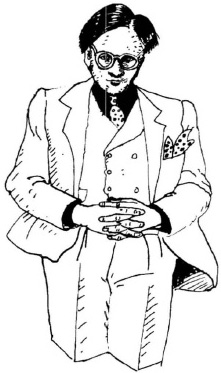
Suppose he is what he sounds like, the most important thinker since Newton, Darwin, Freud, Einstein, and Pavlovwhat if he is right?
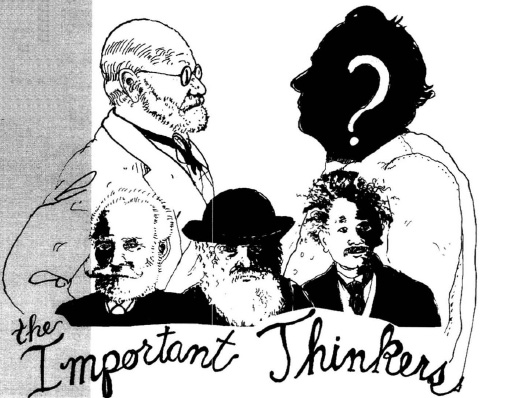
M cLuhan was an obscure Canadian professor of English till he published Understanding Media: The Extensions of Man in 1964. The paperback edition became the fastest selling nonfiction book at Harvard and other universitieswith no advertising or promotion! Understanding Media was the book that brought Marshall McLuhan to public attention as a media analyst and catapulted him to international prominence. For the next fifteen years, McLuhan lectured passionately to academic and popular audiences, engaging in all kinds of debates and forums around the world on his key theme: how technology affects the forms and scale of social organization and individual lives.
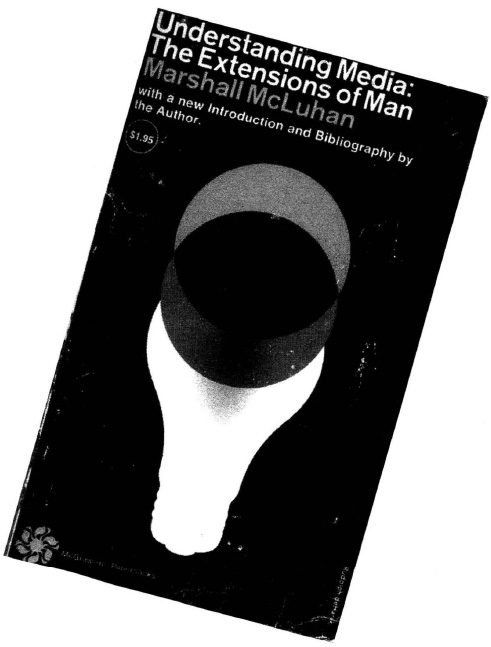
B y 1980, the year McLuhan died, cable TV had not yet come to the Amazon jungle. The inhabitants of the global village he spoke of still knew nothing, or little, about interactive television, PCs, CDs, talking books, the world wide web, terminal node controllers, optical discs, pocket computers, the Internet, optical fiber or laser technology.


A few years ago, when Wired, the terminally hip, future-friendly, magazine of the computer age was hyper-conceived, Marshall McLuhan was chosen as the magazines patron saint. Wired exploded into 1996 by featuring McLuhan in their January issue. Three articles and a handsome, spare-no-expense cover were supposed to be a tribute to McLuhan. (His ghost thanks you.)
Unfortunately, the Wired articles so drastically misrepresented his teaching that many readers must have wondered: why bother with McLuhan?theres nothing to be gained from reading him.
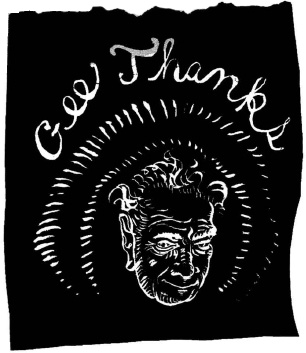
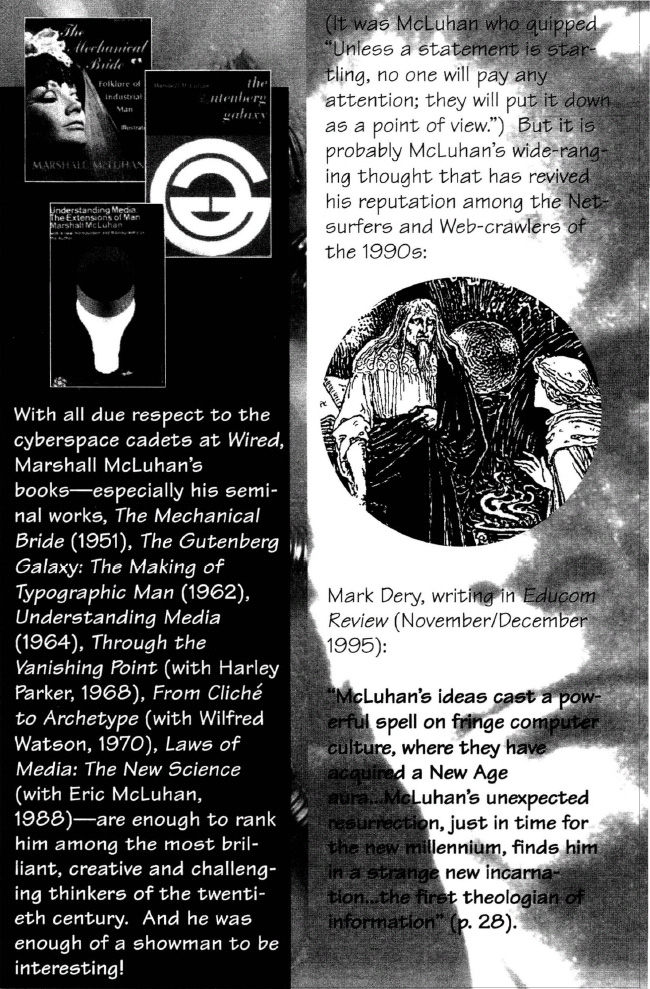
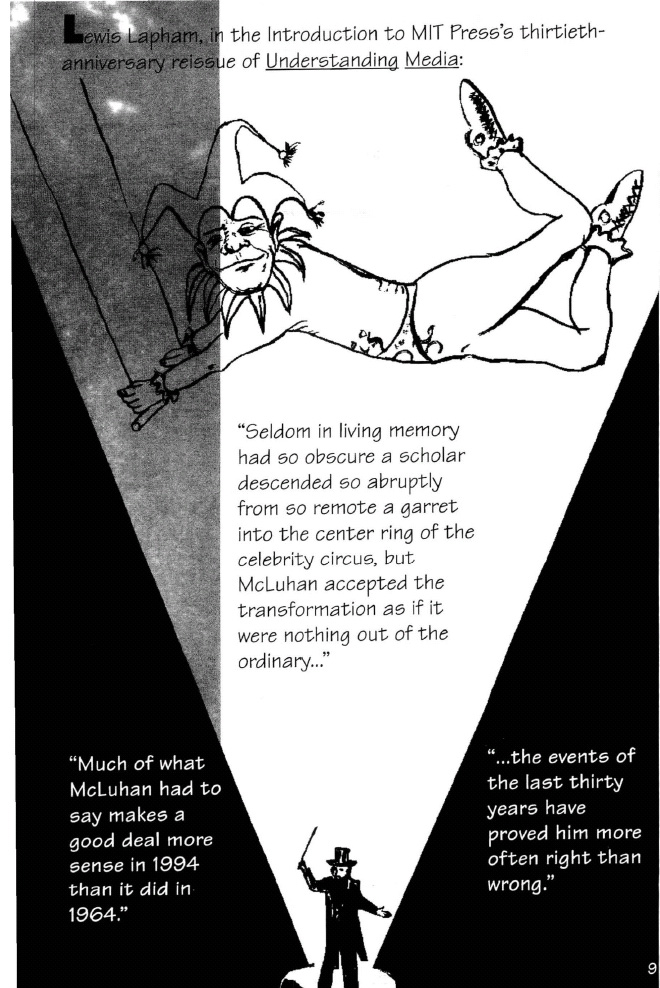
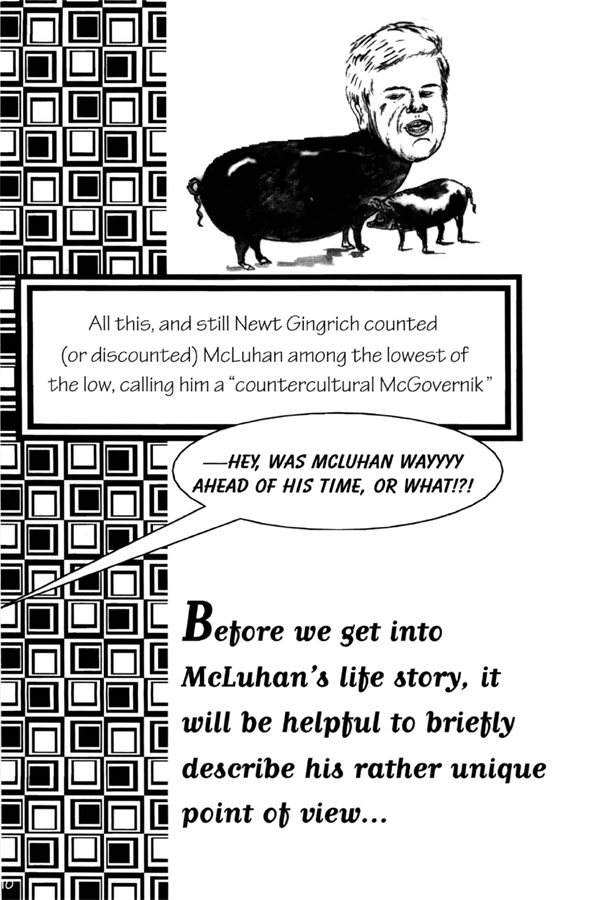

 cLuhans approach to any question was to refuse to have a fixed viewpoint. For McLuhan, understanding always requires a multidimensional approach. To fully understand anything, he argued, you have to look at it from several points of view. So, McLuhan would have gone against his own beliefs and teaching with just a single take on anything. With no fixed viewpoint, his writings present no complex argument, no thesis developed over a long stretch.
cLuhans approach to any question was to refuse to have a fixed viewpoint. For McLuhan, understanding always requires a multidimensional approach. To fully understand anything, he argued, you have to look at it from several points of view. So, McLuhan would have gone against his own beliefs and teaching with just a single take on anything. With no fixed viewpoint, his writings present no complex argument, no thesis developed over a long stretch.
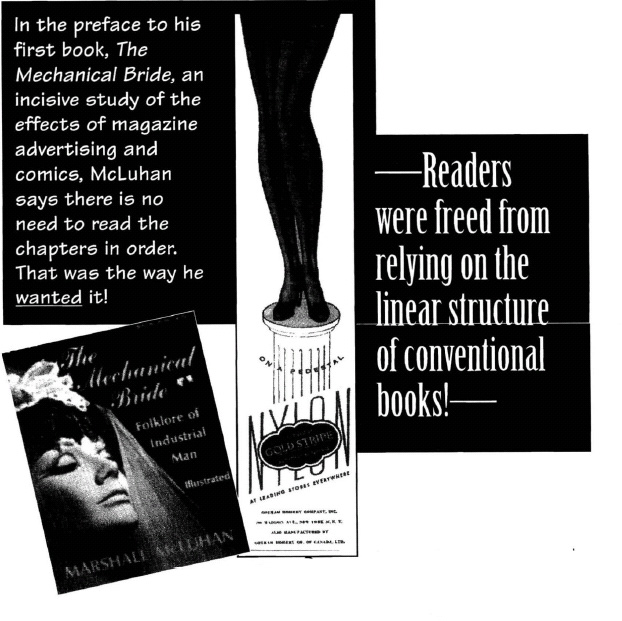
 he unsettling result in The Mechanical Bride was intended. McLuhan claimed that his work offered a mosaic, or field, approach to the questions he studied, in the same way that the media effects he probed reorganized audiences perceptions of the world around them (more on probes later). In The Gutenberg Galaxy, McLuhan jolts his readers into an awareness of how books function as a medium (more on this later, too!)
he unsettling result in The Mechanical Bride was intended. McLuhan claimed that his work offered a mosaic, or field, approach to the questions he studied, in the same way that the media effects he probed reorganized audiences perceptions of the world around them (more on probes later). In The Gutenberg Galaxy, McLuhan jolts his readers into an awareness of how books function as a medium (more on this later, too!)
The point is, if we read The Gutenberg Galaxy

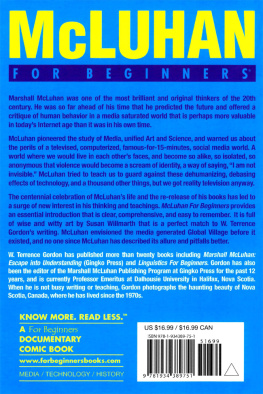

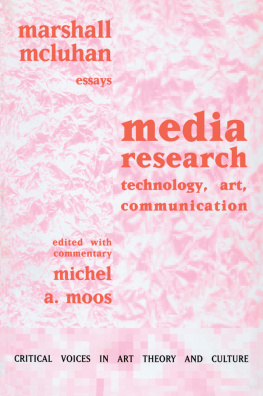
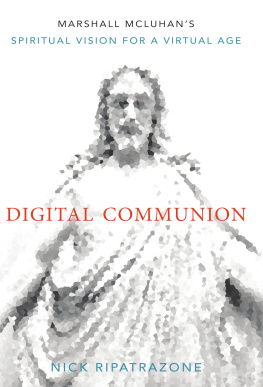
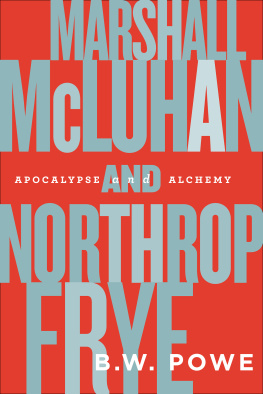
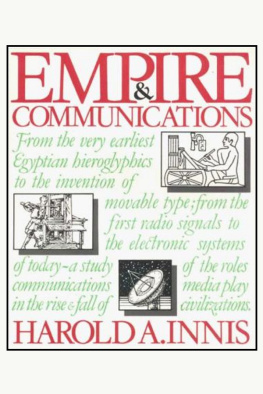
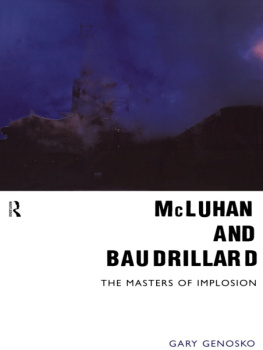
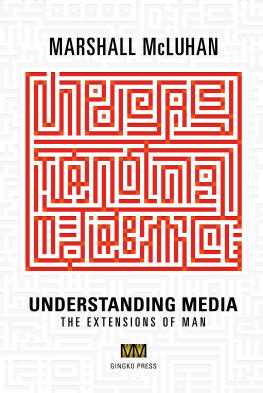
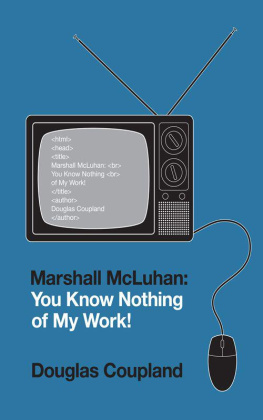






 f you are like most people, youve probably heard of Marshall McLuhanthe man Playboy magazine called the High Priest of popcult and the Metaphysician of Mediaand You probably even recognize a couple of the phrases he came up Withthe medium is the message arid the global villagebut thats about it. Not only have you never read any Of McLuhans books, youve probably never read anything that makes you. think you should.
f you are like most people, youve probably heard of Marshall McLuhanthe man Playboy magazine called the High Priest of popcult and the Metaphysician of Mediaand You probably even recognize a couple of the phrases he came up Withthe medium is the message arid the global villagebut thats about it. Not only have you never read any Of McLuhans books, youve probably never read anything that makes you. think you should.











 cLuhans approach to any question was to refuse to have a fixed viewpoint. For McLuhan, understanding always requires a multidimensional approach. To fully understand anything, he argued, you have to look at it from several points of view. So, McLuhan would have gone against his own beliefs and teaching with just a single take on anything. With no fixed viewpoint, his writings present no complex argument, no thesis developed over a long stretch.
cLuhans approach to any question was to refuse to have a fixed viewpoint. For McLuhan, understanding always requires a multidimensional approach. To fully understand anything, he argued, you have to look at it from several points of view. So, McLuhan would have gone against his own beliefs and teaching with just a single take on anything. With no fixed viewpoint, his writings present no complex argument, no thesis developed over a long stretch.
 he unsettling result in The Mechanical Bride was intended. McLuhan claimed that his work offered a mosaic, or field, approach to the questions he studied, in the same way that the media effects he probed reorganized audiences perceptions of the world around them (more on probes later). In The Gutenberg Galaxy, McLuhan jolts his readers into an awareness of how books function as a medium (more on this later, too!)
he unsettling result in The Mechanical Bride was intended. McLuhan claimed that his work offered a mosaic, or field, approach to the questions he studied, in the same way that the media effects he probed reorganized audiences perceptions of the world around them (more on probes later). In The Gutenberg Galaxy, McLuhan jolts his readers into an awareness of how books function as a medium (more on this later, too!)